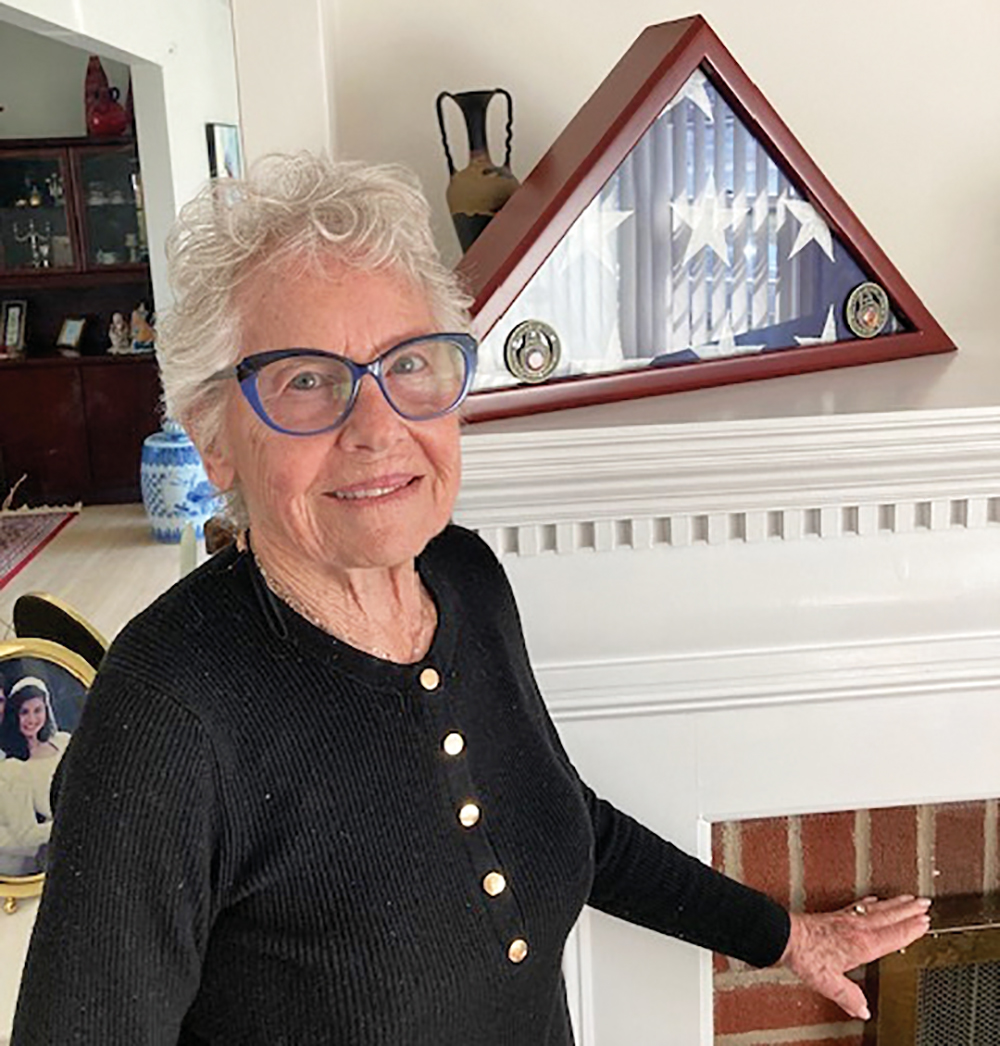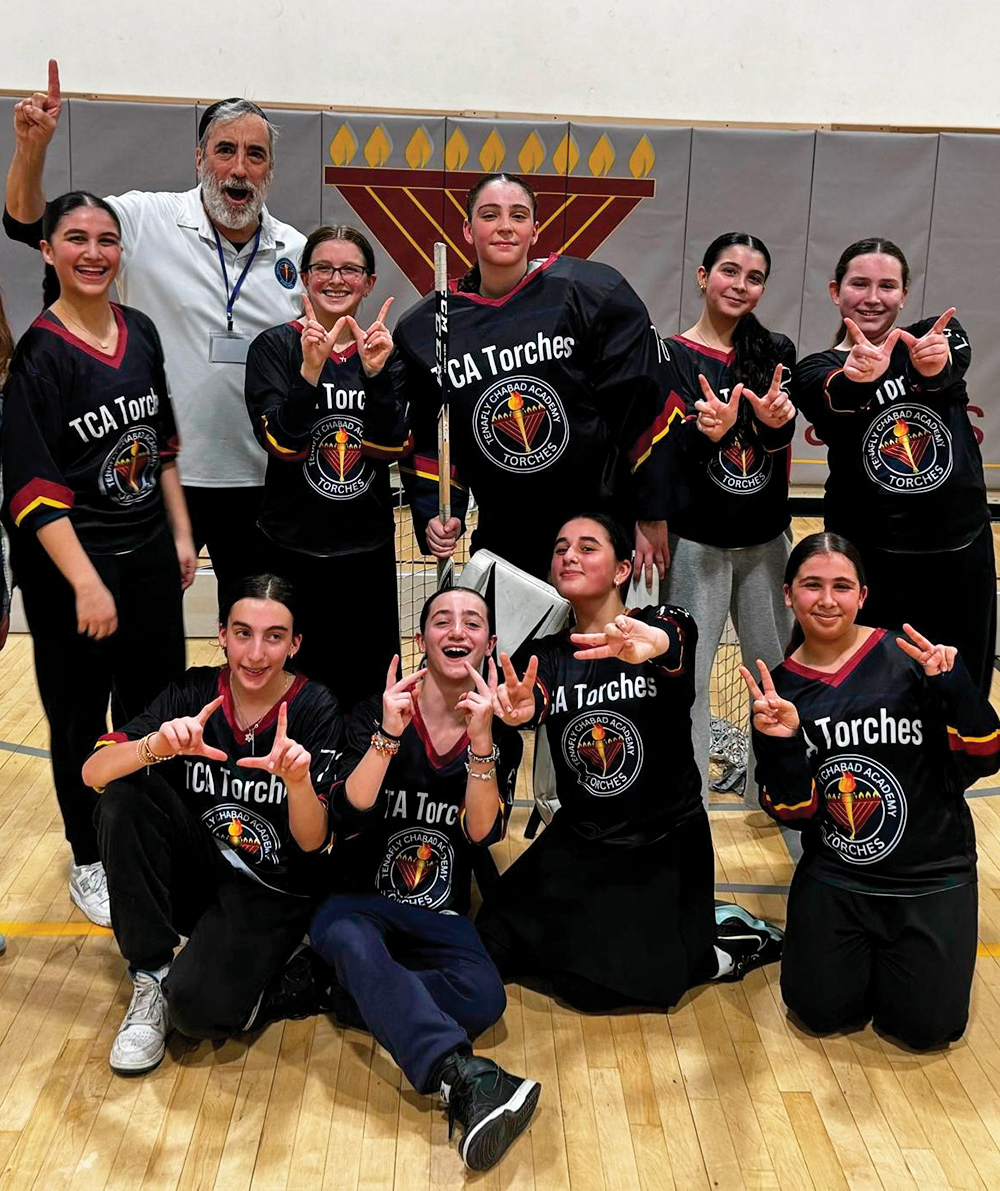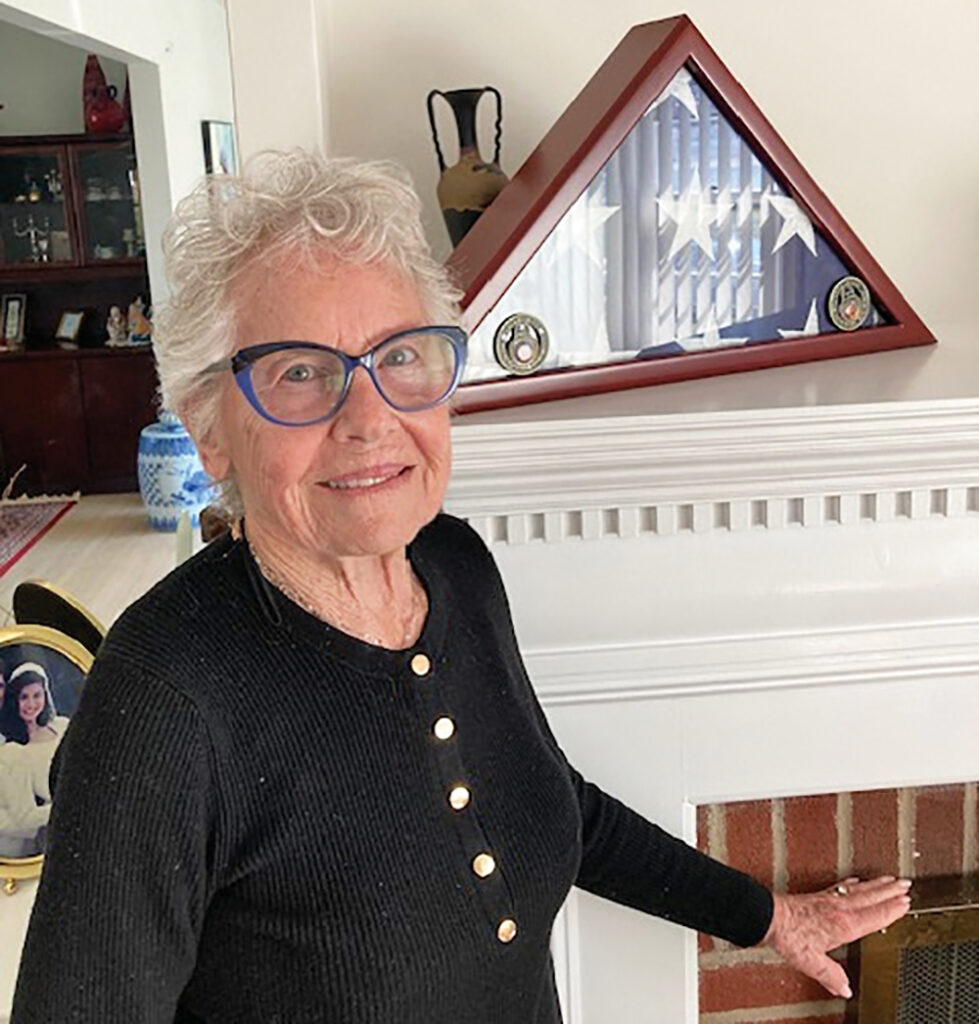
Ruth Lapp began her interview with The Jewish Link expressing heartfelt thoughts. A woman of charm, her first words were spoken softly. “So powerful, full of respect and warmth and love,” she said.
She was describing her experience just one week earlier at the U.S. Army Institute for Religious Leadership in Fort Jackson, South Carolina. Her husband, Rabbi David Lapp, z’l, an army chaplain who had risen to the rank of colonel, had passed away in October of 2022. Now, 17 months later, his memory was being honored in an unforgettable, highly emotional ceremony for her. Both a new sefer Torah and aron kodesh had been commissioned and donated in his name by the Jewish Welfare Board (JWB) Jewish Chaplains Council.
Rabbi Lapp was executive director of the organization for 25 years after having previously served as an army chaplain for 25 years. What began as an act of hakarat hatov to the country that took him in after his family had escaped from Austria during World War II, became a half- century labor of love.
The planned dedication took Ruth by surprise. One day in late December she received a phone call, followed by a letter from the current executive director of the JWB, Rabbi Irving Elson, a retired captain. He told her of the organization’s plans, inviting her to attend the ceremony and bring along any guests she wished. Both of her sons, Aaron, who flew in from Israel, and Eli, who lives in Yonkers and came with his wife, as well as her daughter Esti, who lives near Ruth, attended. Two members of her shul, Shomrei Torah of Fair Lawn, also flew down. Ruth spoke warmly of Jeff Cohen and Shaya Birnbaum, who had taken turns wheeling Rabbi Lapp to shul on Shabbos when he was no longer able to walk. She was touched that they made the effort to attend.
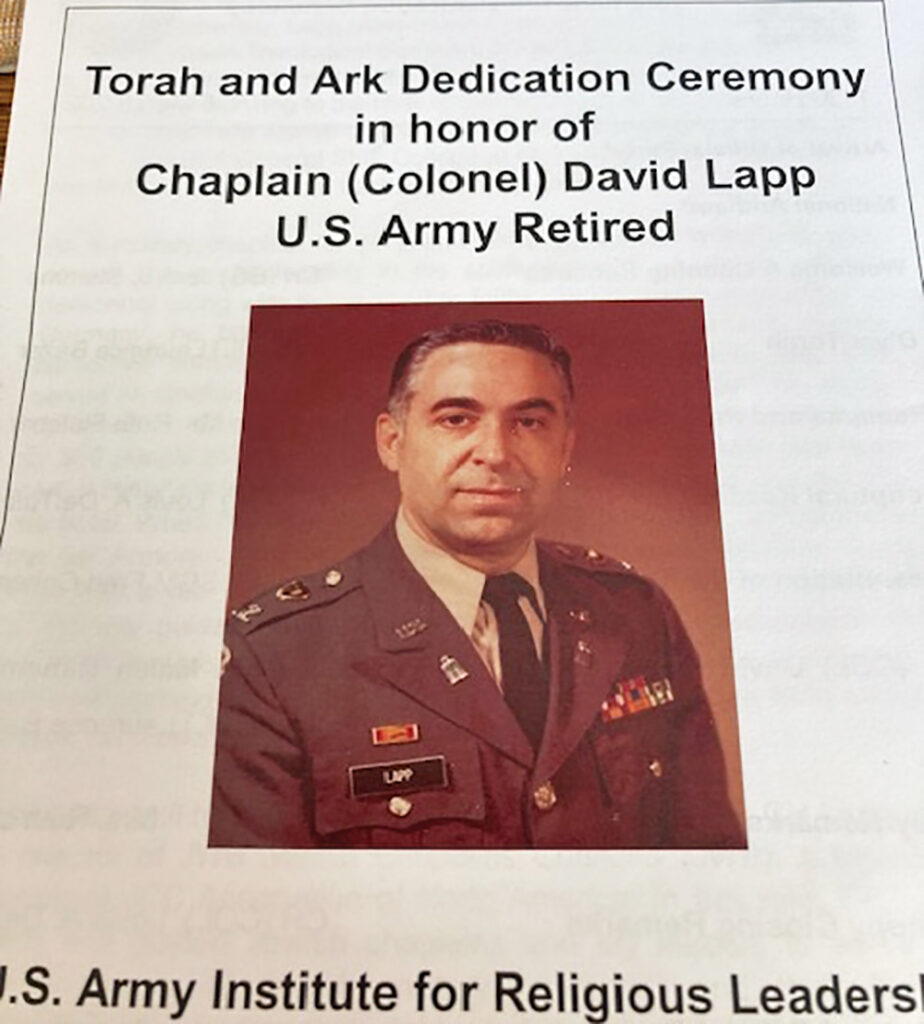
Ruth shared that she had expected about 20 people to be at the formal ceremony and was shocked when she was greeted by 300 members of the chaplain school representing all denominations. Expressing awe, she noted that two generals as well as a number of colonels were in attendance. She commented that it was beautiful having such a diverse group there to honor her husband, adding “David would have loved that too.” She went on to explain, “David’s main love was the Torah. Every Shabbos morning he would sing. The Torah was his whole life and his connection to the Torah was people. There were no preferences. He loved everybody.”
Most meaningful to Ruth was seeing her late husband’s name on the new Torah’s covering. Speaker after speaker alluded to the warmth and kindness of Rabbi Lapp. As the Jewish chaplain shared, “Rabbi Lapp was a kind, soft-spoken and righteous soul, loved and respected in the halls of the Pentagon, such a sweet man.” As an aside, she added that her husband had been the one who had brought that chaplain, who now held the rank of colonel, into chaplain school.
Ruth opened up about her husband’s childhood, which had not been an easy one. He was born in Austria in 1931, and as the Nazi era began to take hold, he would often be chased, beaten and come home bloodied by classmates in school who called him a dirty Jew. His mother was forced to take him out of school and for his safety accompanied him everywhere going forward. It took three years to obtain a visa to enter the U.S. Once there, he attended public school where, ironically, the other kids would call him a Nazi. Exasperated, his father visited the local yeshiva, asking the principal if he could please take his son in, adding “I’ll live on bread and water if necessary to pay for it.” He was admitted, but at the age of 10, he was three grades behind, barely knowing any English. He quickly made up for lost time, skipping grades to catch up.
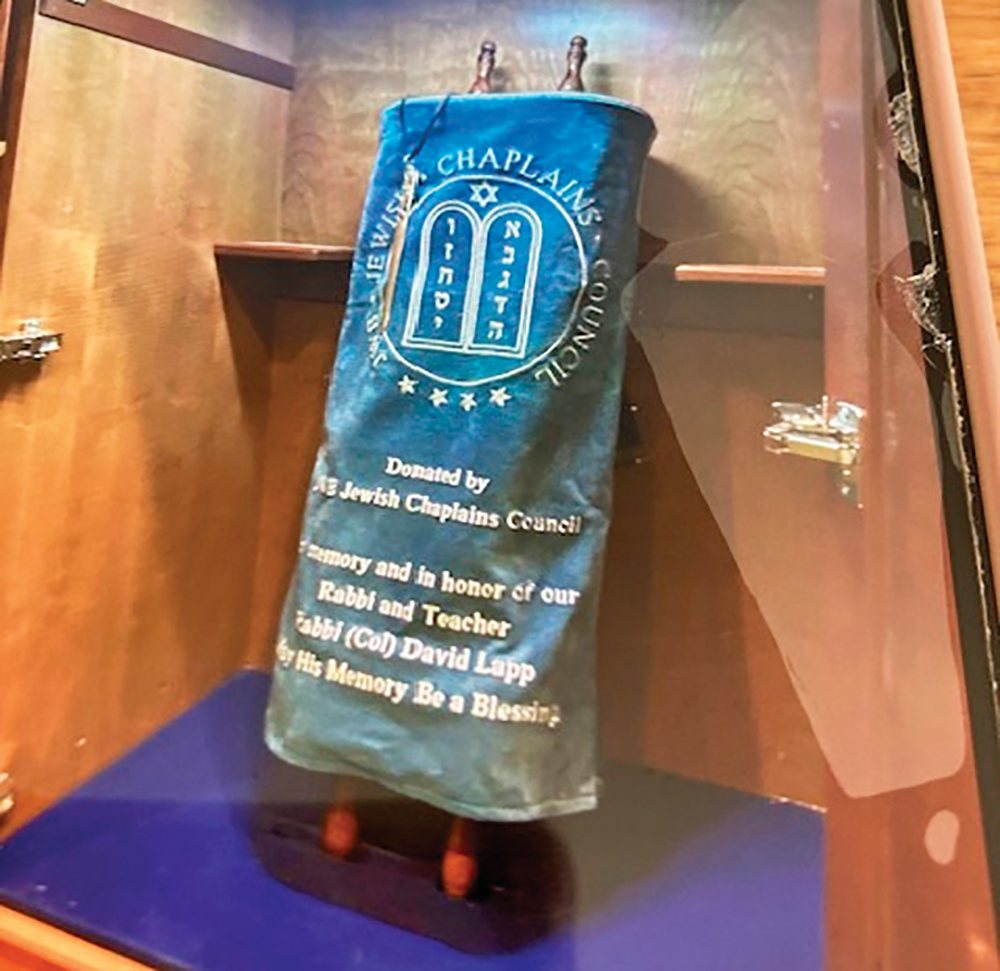
Given his background, it was amazing that someone who had been exposed to the worst of humanity during his formative years could go on to show such love and caring for others.
Rabbi Lapp had a storied career in the army. After graduating from Yeshiva University, he received ordination from the Isaac Elchanan Theological Seminary in 1957, the same year he was commissioned as a lieutenant in the Army Chaplain Corps. He served in Ft. Leavenworth, Kansas and Carlisle, Pennsylvania before going overseas. He brought Jewish worship to military personnel stationed in Munich, Augsburg and northern Italy, and served as stockade chaplain at Dachau. One highlight was when he held a Torah study session attended by 500 people at the General Walker Hotel, which originally had been part of Hitler’s retreat in Berchtesgaden before the army converted it. Another was during his year he served in Viet Nam, when he heard of a lone Jewish soldier seeking spiritual help in a danger zone. He insisted on being helicoptered in to provide the needed comfort. Additionally, he built relationships with residents, lectured at a seminary, helped build a nursery, and brought food and clothing to nearby villages.
As director of the JWB Jewish Chaplains Council, Rabbi Lapp trained and guided Jewish chaplains and lay leaders to serve the religious needs of Jewish military personnel and their families worldwide. He was proud at having worked with rabbis from Reform, Conservative and Orthodox seminaries during his tenure to produce the first trans-denominational siddur for military personnel. He also played a pivotal role in helping the U.S. Army provide ready-to-eat kosher meals to soldiers in the field.
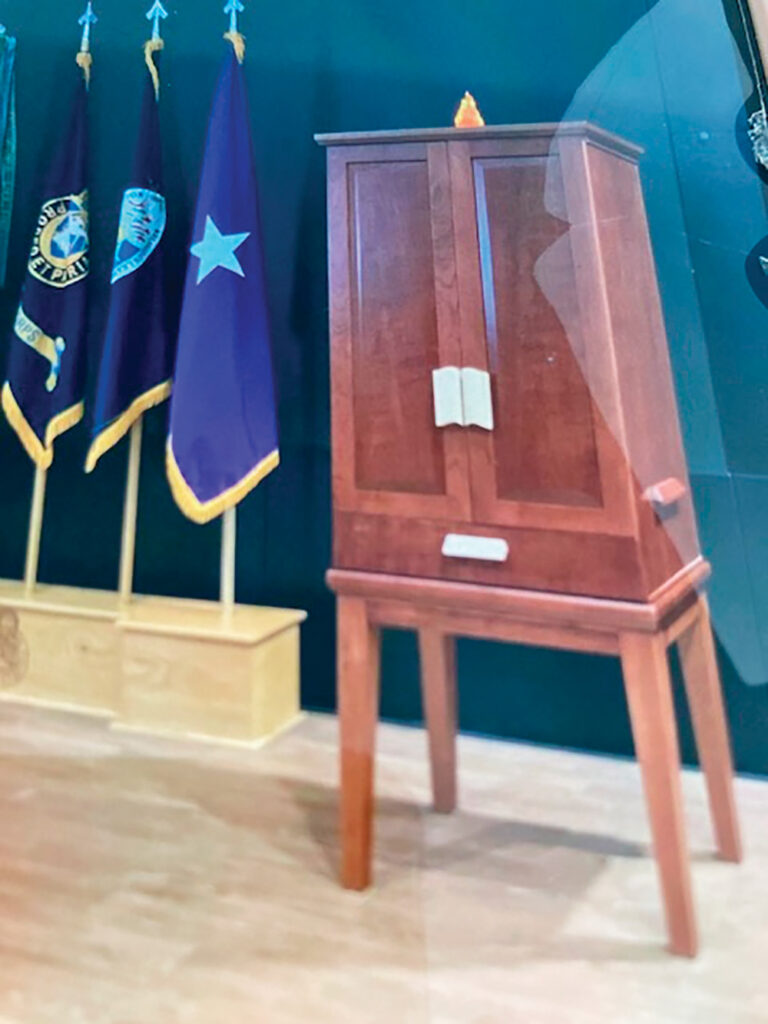
Robert Isler is a marketing research analyst and freelance writer who specializes in Jewish issues. He can be reached at robertisler23@gmail.com


